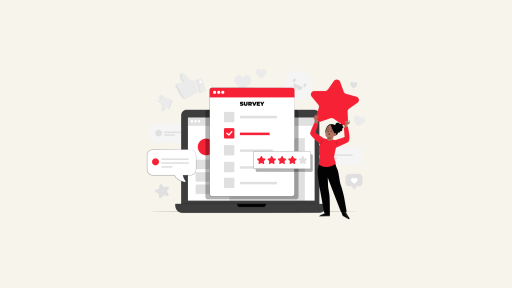Introduction:
In the ever-evolving realm of human resources, the role of an HR Business Partner (HRBP) has gained prominence as organizations strive to align their people strategies with overall business objectives. In this article, we will delve into the essence of an HR Business Partner and explore the reasons why having one is crucial for organizational success.
Defining the HR Business Partner:
An HR Business Partner is not just an HR professional; they are strategic collaborators who bridge the gap between HR and business operations. Unlike traditional HR roles that predominantly focus on administrative tasks, HRBPs actively engage with business leaders to understand the company’s goals and work towards developing human resources strategies that contribute to achieving those objectives.
Key HR Business Partner Responsibilities:
1. Strategic Alignment:
Explanation:
HRBPs engage in regular dialogue with top management to understand the organization’s long-term vision and objectives. They analyze market trends, competitors, and internal capabilities to align HR strategies with the overall business strategy. This involves identifying key areas where the workforce can contribute most effectively to achieving organizational goals.
Importance:
Strategic alignment ensures that HR initiatives are not isolated but contribute synergistically to the broader business objectives. This proactive approach enhances organizational agility, enabling the company to respond effectively to changing market conditions and stay ahead of competitors.
2. HR Business Partner as a defender of employee interests
Explanation:
HRBPs serve as intermediaries between employees and management. They actively seek feedback, conduct surveys, and hold regular meetings to understand employee concerns. HRBPs also play a crucial role in conflict resolution, ensuring fair treatment, and championing employee rights.
Importance:
Employee advocacy contributes to a positive workplace culture, boosting employee morale and fostering a sense of belonging. When employees feel heard and supported, they are more likely to be engaged, leading to increased productivity, reduced turnover, and a stronger employer brand.
3. Talent Management:
Explanation:
HRBPs are deeply involved in every aspect of talent management. They collaborate with hiring managers to identify staffing needs, strategize recruitment efforts, and implement effective onboarding processes. Additionally, they work with leaders to create career development plans, identify high-potential employees, and implement succession planning.
Importance:
Talent management is critical for maintaining a competitive edge. HRBPs ensure that the organization has a robust talent pipeline, minimizing skill gaps and maximizing the potential of each employee. This strategic approach helps the company adapt to changing business needs and promotes long-term organizational sustainability.
4. Change Management:
Explanation:
HRBPs play a proactive role in managing organizational change. They assess the impact of changes on the workforce, develop communication strategies to address concerns, and provide support during transitions. This involves creating training programs, workshops, and resources to help employees adapt to new processes or structures.
Importance:
Change management is crucial for preventing disruptions and maintaining employee morale during times of transition. HRBPs contribute to a smooth change implementation process, ensuring that the organization can embrace new strategies or structures with minimal resistance.
5. Data-Driven Insights:
Explanation:
HRBPs leverage HR analytics tools to gather and analyze data related to various HR metrics, such as employee performance, turnover rates, and workforce demographics. They use these insights to identify trends, predict future workforce needs, and assess the effectiveness of HR programs.
Importance:
Data-driven decision-making enables HRBPs to provide evidence-based recommendations. By analyzing workforce data, they can identify areas for improvement, optimize HR processes, and align strategies with organizational goals. This approach ensures that HR initiatives have a measurable impact on the overall success of the company.
Why You Need an HR Business Partner:
1. Strategic Business Focus:
Detailed Explanation:
An HR Business Partner brings a strategic lens to HR functions, going beyond routine administrative tasks. By actively participating in strategic planning sessions with top management, HRBPs contribute to the development and execution of business strategies. This involvement ensures that human capital is considered a central element in achieving organizational objectives.
Importance:
In an era where businesses are facing unprecedented challenges, having an HRBP is akin to having a strategic partner dedicated to maximizing the potential of the workforce. This strategic business focus allows organizations to adapt swiftly to market changes, capitalize on emerging opportunities, and maintain a competitive edge.
2. Enhanced Employee Experience:
Detailed Explanation:
Employee experience is not just about perks; it’s about creating a work environment where employees feel valued and supported. HRBPs actively engage in employee feedback mechanisms, conduct surveys, and implement programs that enhance the overall employee experience. This includes initiatives related to professional development, work-life balance, and employee well-being.
Importance:
An enhanced employee experience directly correlates with increased employee satisfaction, engagement, and retention. HRBPs play a pivotal role in building a workplace culture that fosters collaboration, innovation, and a sense of purpose, ultimately contributing to a more motivated and productive workforce.
3. Proactive Problem Solving with HR Business Partner:
Detailed Explanation:
HRBPs proactively identify and address potential HR challenges before they escalate. Whether it’s resolving workplace conflicts, mitigating employee dissatisfaction, or addressing performance issues, HRBPs work closely with both employees and management to find effective solutions.
Importance:
Proactive problem-solving minimizes disruptions to the workplace and prevents issues from becoming major obstacles. This approach not only maintains a positive work environment but also contributes to overall organizational resilience, allowing the company to navigate challenges with agility.
4. Optimized Talent Management:
Detailed Explanation:
Talent is a valuable organizational asset, and HRBPs are central in optimizing its management. This involves identifying the skills needed for current and future roles, implementing effective recruitment strategies, and ensuring that employees have the opportunities and support needed for professional growth.
Importance:
Optimized talent management ensures that the right people are in the right roles, maximizing individual and collective contributions. HRBPs contribute to building a skilled workforce aligned with the organization’s values and goals, laying the foundation for sustained success.
5. Informed Decision-Making with Data-Driven Insights:
Detailed Explanation:
HRBPs leverage data analytics to gain insights into workforce trends, performance metrics, and HR program effectiveness. By using these insights, they provide evidence-based recommendations for decision-making, enabling the organization to make informed choices regarding talent management, employee engagement, and overall HR strategy.
Importance:
Informed decision-making based on data ensures that HR initiatives are aligned with organizational goals and have a measurable impact. HRBPs contribute to a culture of continuous improvement, where HR processes are optimized based on real-time data, fostering organizational agility and adaptability.
Conclusion
In summary, the presence of an HR Business Partner is not just an organizational luxury; it’s a strategic necessity. Their focus on strategic alignment, employee experience, proactive problem-solving, optimized talent management, and data-driven insights positions them as indispensable contributors to organizational success in the dynamic landscape of modern business. The HRBP is not merely a function within the organization but a catalyst for excellence and a key driver of sustainable growth.





